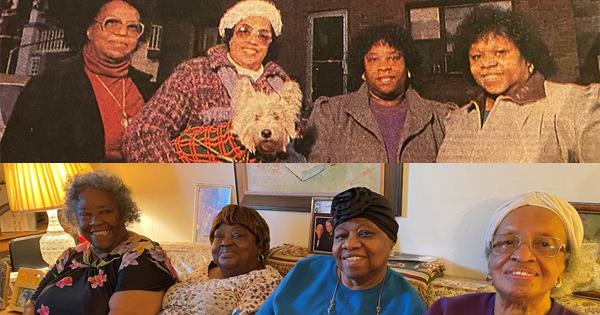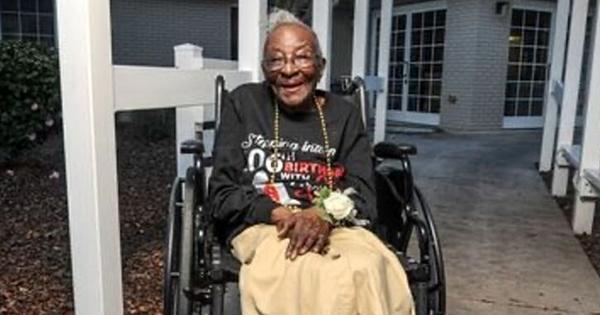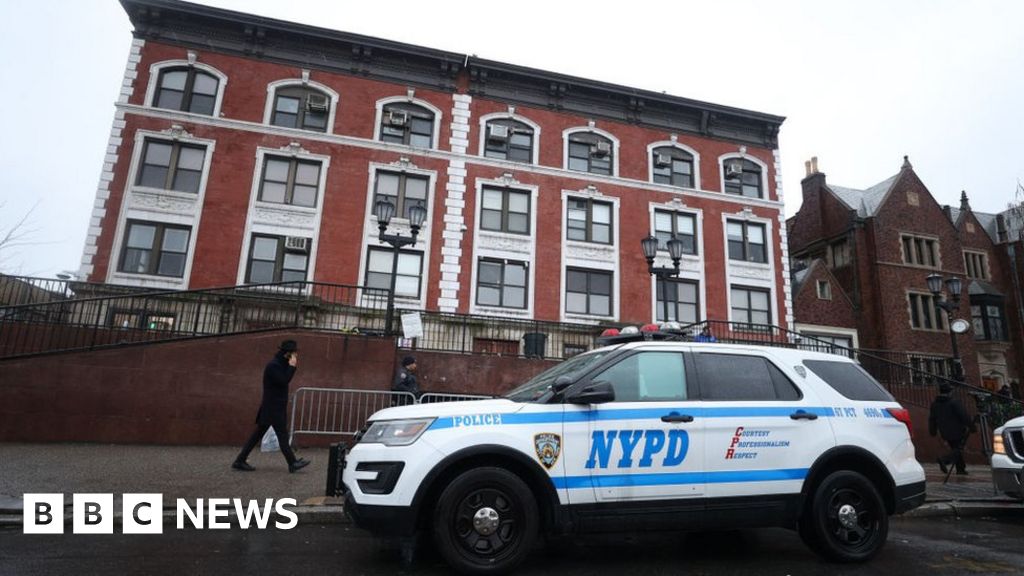You are using an out of date browser. It may not display this or other websites correctly.
You should upgrade or use an alternative browser.
You should upgrade or use an alternative browser.
top hashtags
- #LetEmKnow1 Mention(s)
- #GoCavs1 Mention(s)
- #CavsNation1 Mention(s)
Filter
Show only:
North Carolina Voters⁉️⁉️
- News
- 0 Replies
Login to view embedded media 
 www.instagram.com
www.instagram.com

Paul L Emanuel on Instagram
2 likes, 2 comments - nsaneoptimist1 on January 12, 2024
 www.instagram.com
www.instagram.com My #VGQ: Black People And Despair
I believe that the System Of White Supremacy has not only caused heavy amounts of despair (meaning: complete lack of hope) for ALL people on the planet but through this constant showering of misery and hopelessness, people have become used to and even entertained by the despair around them as well as the idea of causing despair, this affects White people and turns them into Racists.
Black people are most definitely an example of being so full of despair that we are entertained by it, I'll name some examples: Gangster Rap (Black people rapping and sometimes singing about how the pain/how much pain they want to inflict on and kill other Black people), in films and shows (typically a scene where a silly Black character will say something weird or stupid while in conversation with another Black person and that other Black character says something like "Man, shut the ((F)) up" in response *laughtrack ensues*, In this case, not only is there a silly Black person who is doing nothing but being silly and not focused on solving problems but he/she is also being verbally mistreated and we are programmed to laugh at that ((this silly Black character may also be the cause of some problems that the characters get into which further justifies their mistreatment)); my last example is playing video games and finding joy in causing chaos e.g. causing explosions, killing and beating characters, enemies or NPCs and being rewarded points for it etc. (the videogame example isn't mostly tied towards Black people but it is something that a great number of Black people do).
Finally, I will say that for many decades Black people have been talking about Racism/White Supremacy and the despair it causes but we did not talk about solutions to ending White Supremacy (other than the Black spokespersons that I know of like Neely Fuller Jr. and Dr. Frances Cress Welsing who, from what I have been told, decided to come up with solutions because not many Black people before them mentioned ways in which we can solve the Race Problem).
"So, how do you recommend that we solve this despair problem?" My answer: Just keep moving forward and try your very best to Replace the System Of White Supremacy (the cause of ALL problems on this planet) With a System Of Justice because that's all you can do, all you can do is move forward, I like to think that if you feel as if you are going nowhere, you aren't moving backwards and becoming degraded, you just stopped moving and stood in one place so you can only move forward. I remember being told by a person that "The fact that you are searching for hope (especially when trying to solve a specifc problem) proves that there is hope because your search for hope is motivated by the fact that you HOPE to find hope." So a person trying to end White Supremacy exists in a universe where hope also exists, otherwise why would that person be bothered to even think about ending Racism/White Supremacy? Whether it is The Creator, the White Supremacists themselves or the Victims Of Racism that end White Supremacy, this nightmare is guaranteed to end in one way or another and if you want Racism to be destroyed fast then you gotta put in that work yourself or with other people💪🏾💯💯🔥🔥
Black people are most definitely an example of being so full of despair that we are entertained by it, I'll name some examples: Gangster Rap (Black people rapping and sometimes singing about how the pain/how much pain they want to inflict on and kill other Black people), in films and shows (typically a scene where a silly Black character will say something weird or stupid while in conversation with another Black person and that other Black character says something like "Man, shut the ((F)) up" in response *laughtrack ensues*, In this case, not only is there a silly Black person who is doing nothing but being silly and not focused on solving problems but he/she is also being verbally mistreated and we are programmed to laugh at that ((this silly Black character may also be the cause of some problems that the characters get into which further justifies their mistreatment)); my last example is playing video games and finding joy in causing chaos e.g. causing explosions, killing and beating characters, enemies or NPCs and being rewarded points for it etc. (the videogame example isn't mostly tied towards Black people but it is something that a great number of Black people do).
Finally, I will say that for many decades Black people have been talking about Racism/White Supremacy and the despair it causes but we did not talk about solutions to ending White Supremacy (other than the Black spokespersons that I know of like Neely Fuller Jr. and Dr. Frances Cress Welsing who, from what I have been told, decided to come up with solutions because not many Black people before them mentioned ways in which we can solve the Race Problem).
"So, how do you recommend that we solve this despair problem?" My answer: Just keep moving forward and try your very best to Replace the System Of White Supremacy (the cause of ALL problems on this planet) With a System Of Justice because that's all you can do, all you can do is move forward, I like to think that if you feel as if you are going nowhere, you aren't moving backwards and becoming degraded, you just stopped moving and stood in one place so you can only move forward. I remember being told by a person that "The fact that you are searching for hope (especially when trying to solve a specifc problem) proves that there is hope because your search for hope is motivated by the fact that you HOPE to find hope." So a person trying to end White Supremacy exists in a universe where hope also exists, otherwise why would that person be bothered to even think about ending Racism/White Supremacy? Whether it is The Creator, the White Supremacists themselves or the Victims Of Racism that end White Supremacy, this nightmare is guaranteed to end in one way or another and if you want Racism to be destroyed fast then you gotta put in that work yourself or with other people💪🏾💯💯🔥🔥
Black DC Apartment Building Increased From $75k To $2 Million
- The Cookout
- 0 Replies
This apartment building increased from $75,000 to $2 million over a 40 year period. I like to see this kind of wealth being built the honest way amongst four Black women, but the money likely will be used over time to help them deal with their health problems. The neighborhood went from being bad when they bought it to so much better which is great news.

 blacknews.com
blacknews.com

Black Women Who Bought DC Apartment Building 40 Years Ago For $75K Say Its Now Worth $2 Million
Nationwide -- Four decades have passed since they collectively purchased the unassuming six-unit building tucked away in Northwest Washington DC. Today, four of the original tenants, all African American women, still reside within its walls, and the building the purchase in 1983 for $75,000 is...
Karens
- The Cookout
- 1 Replies
I saw this post from The Root that was posted this past summer regarding Karens. It is entitled "13 Places You Might Find a Karen Causing a Ruckus This Summer." I want to know your favorite way(s) to deal with a Karen (or a Ken).

 www.theroot.com
www.theroot.com

18 Places You Might Find a Karen Causing a Ruckus this Summer
Black people raise your cellphones in the air, it's Karen season. Not even your own home is safe from a Karen tantrum.
 www.theroot.com
www.theroot.com UK And US Issued Airstrikes On Yemen
This happened yesterday or the day before, I can't keep up but there might be interruptions coming to trade routes because of this. What does that mean? Prices are about to go up again if so and we may be facing shortages. So make sure you keep an eye on what these war mongers are up to. It is not looking good.
The US needs to mind its own business and fix the problems we have here instead of creating more problems for everyone else, including ourselves but there is not chance of that... not with who is in charge right now.
The US needs to mind its own business and fix the problems we have here instead of creating more problems for everyone else, including ourselves but there is not chance of that... not with who is in charge right now.
Grocery Pickup Or Delivery
- The Cookout
- 2 Replies
I'm just curious as to how many of ya'll use grocery pickup or grocery delivery when you need groceries. Before the pandemic happened, some of the grocery stores in my geographic area started doing grocery pickup as a way of increasing revenue and standing out amongst customers. None of them offered grocery delivery until maybe about 4 years ago.
I used to be the kind of person who was against grocery pickup and delivery because I did not want somebody else picking out my fruits and vegetables although it does not matter who picks out products that come in sealed packages since a person cannot touch what is inside. I admit this is time consuming and may cause social anxiety for some. Then, the pandemic happened. I did not want to be around folks who were coughing with their mouths wide open and not even trying to keep the germs from spreading. Since the pandemic started, I have gotten my groceries delivered so many times. Picking them up is my second preferred option. And going inside is now my least favorite option although grocery shopping in my area is back to pre-pandemic times.
I am curious as to whether ya'll prefer grocery pickup or delivery, or whether you like the traditional way of walking in there and picking things out yourself?
I used to be the kind of person who was against grocery pickup and delivery because I did not want somebody else picking out my fruits and vegetables although it does not matter who picks out products that come in sealed packages since a person cannot touch what is inside. I admit this is time consuming and may cause social anxiety for some. Then, the pandemic happened. I did not want to be around folks who were coughing with their mouths wide open and not even trying to keep the germs from spreading. Since the pandemic started, I have gotten my groceries delivered so many times. Picking them up is my second preferred option. And going inside is now my least favorite option although grocery shopping in my area is back to pre-pandemic times.
I am curious as to whether ya'll prefer grocery pickup or delivery, or whether you like the traditional way of walking in there and picking things out yourself?
108 Years Old
- The Cookout
- 5 Replies
How old was the oldest person in your family before he or she died? And what great pieces of wisdom did they pass down? Like how to live a long time and life advice?

 blacknews.com
blacknews.com

Black Woman Turns 108 Years Old, Possibly Oldest Person in Georgia
Meet Flora Mae White, a Black woman from Georgia who just turned 108 years old. Flora, who has spent her entire life in the state, is now considered the oldest living woman in central Georgia.
Vision Boards
- The Cookout
- 12 Replies
What are your thoughts on vision boards? The reason I ask this is because I keep seeing so many people talking about having a vision board. I have a personal one, and I have a business one. I created both of mine by taking magazines that I was about to throw in the trash. I cut pictures and positive words out and glued them onto the board. When I get up every morning, I have no choice but to see both of them. It is a psychological reminder everyday that I need to do things to move upwards. My overall thoughts are that they can be a great tool to visually see the big goal(s).
Need Your Stubborn, Damaged Hair Restored In Weeks?
- News
- 5 Replies
There is a new Black hair care product for those people who have stubborn, damaged hair. It works in just weeks. Some of the other ones on the market may not work for a portion of our population. I love to see products like this since they can help our people look our best.

 blacknews.com
blacknews.com

Black Entrepreneur Launches Hair Care Products That Restore Stubborn Damaged Hair in Weeks
Nationwide -- Meet Angela H. Brown, Founder and CEO of Deserve Healthy Hair, which produces the first plant-based product line that reverses extreme hair loss issues much faster than most products on the market today. She created and launched her haircare brand in 2016.D’Serv Healthy Hair Care...
Virginia Elects First Black State Speaker Of The House
- News
- 9 Replies
How am I not surprised that it took this long? Get in there and make some great things happen for the people.

 www.nbcnews.com
www.nbcnews.com

Virginia elects first Black speaker of the state House
Del. Don Scott becomes the first Black speaker in Virginia legislative history.
Fruit Stripe Gum Has Been Discontinued After 54 Years
- News
- 1 Replies
I am surprised this gum lasted this long although I was one of the only folks I know who loved this gum. I almost never saw other folks with this brand.

 news.yahoo.com
news.yahoo.com
Fruit Stripe gum has been discontinued after 54 years
An icon of the gum world has experienced its final chew.
What Kind Of Smart Tech Do You Have In Your Home?
So I recently got one of those smart bulbs you can control with your phone. It was on sale, only $10 and I wanted to use it to turn a light on when I am not home make it seem like I am there. Also, provide a light for my cats. I am loving this thing. I can make it any color, adjust brightness, put it on a timer, and more. Now I am considering other smart tech for my house. Nothing with cameras though unless it is on my own network.
What kind of smart tech do you have in your home? Anything you plan on getting in the future?
What kind of smart tech do you have in your home? Anything you plan on getting in the future?
When Did White/Jewish Liberal Women Take Over The Word "woke"?
- By Sapphire
- The Cookout
- 0 Replies
I remember it being a term our people used for years and now I see all sorts of white and Jewish women who are liberal using it. You see this especially in the work spaces. Like they have gotten to a point where they are tokenizing black females to make their companies look better. This one video I saw on Instagram a month ago, wish I saved it, was this strong black woman showcasing how she was hired and never invited to meetings yet they always use her in pictures for the company. They basically just gave her a nice office and minimal work to do cause they are using her to "prove they are woke". What kind of nonsense is this?
These are the ladies Malcolm X warned us about!!
These are the ladies Malcolm X warned us about!!
Jewish Tunnel In New York
- News
- 1 Replies
We already know what would have happened if this was Black people who had these tunnels built. They would have stolen whatever was in there. They would have gone as far as the tunnels go to be nosy. 9 people were arrested.

 www.bbc.com
www.bbc.com

Illegal New York synagogue tunnel leads to 9 arrests
A group of men fought with police after the city sent officials to shutter and fill the secret tunnel.
Load more
Trending
- Draymond Green Suspended for Choking Rudy GobertThe Warriors Get Choked Up Off Draymond's On-Court Antics Draymond...
- rm dest
- Updated:
- 3 min read
- Amare Stoudemire's Israel Rant Is a Textbook Case of Stockholm SyndromeAmar'e Stoudemire is making headlines for his recent rant in which he...
- Staff
- Updated:
- 3 min read
- Sexyy Red's Sex Tape Leak Is The Chickens Coming Home to RoostSexyy Red's sex tape recently "leaked" on her IG and it has been taking...
- Jay
- Updated:
- 3 min read
